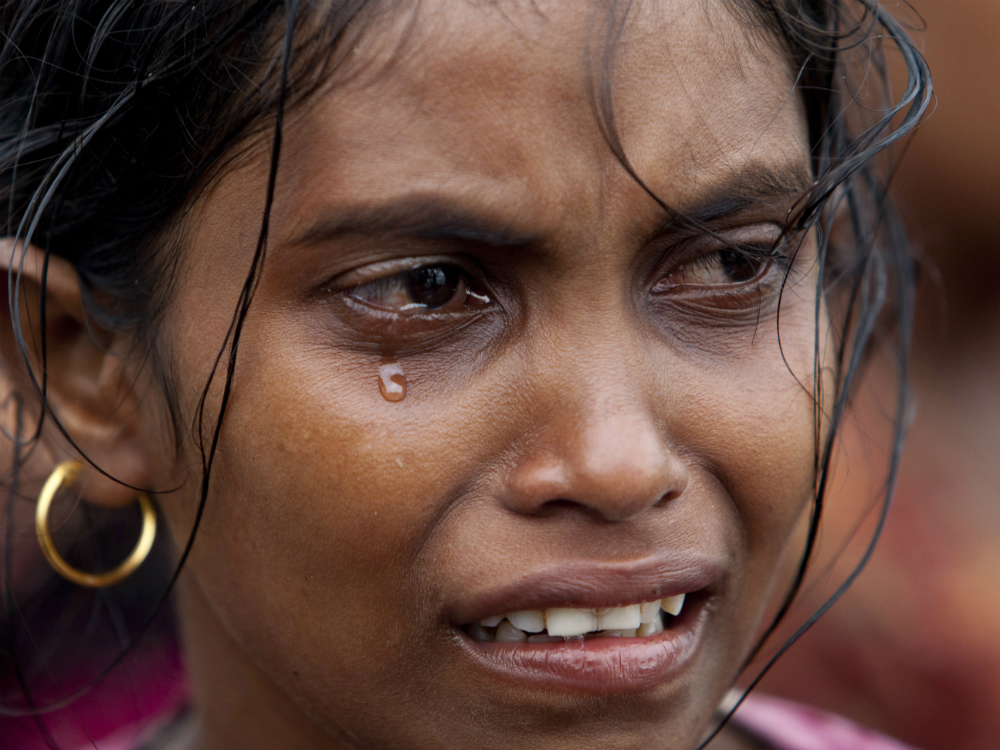Know 1000 Women? 21 Of Them May Have Experienced FGM
A new report details the extent of FGM - Female Genital Mutilation - across the UK. And the results are devastatingly depressing

A new report details the extent of FGM - Female Genital Mutilation - across the UK. And the results are devastatingly depressing
Tears fall down the girl's face as she struggles against her mother's arms. She knows what's about to take place - she's seen it happen to her older sister, her best friend, her cousin, her aunt. But there's noone who she can ask for help, and there's no escape. She's about to become another victim of FGM - another statistic with a life of pain, trauma and infection ahead of her. And she only lives a couple of doors down from your house.
As the summer holidays kick off and 'Cutting Season' commences, so thousands of young women and girls across the UK are subjected to one of society's most inhumane practises. Forced to lie down and spread their legs, their clitoris will be cut off, their labia sliced away and their vulva sewn tight. If they're 'lucky', the person mutilating their bodies will use a surgical scalpel. If they're not, it'll be scissors, or a rusty razor blade.
But before you write this off as something that only happens in the darkest corners of the UK - out of sight in back alleys and side streets, or, better still, a longhaul flight away - what if we told you it was taking place in your village, your town, or your street? That there are women walking past you every day who are still dealing with the mental and physical scars of FGM, and that it's more widespread than ever? Would you listen? Would you try to do something about it?
It's time to find out. Because according to new research released on Wednesday 22nd July, women affected by FGM can now be found living in every local authority in England and Wales. It's estimated that 137,000 women in the UK have already undergone the procedure, and in some areas of London, the rate is so high, experts reckon 21 women in every 1000 have been directly affected by it.
It's hoped that this new report will incite the government to take further steps to prevent FGM taking place in the UK - and to prevent women and girls living here from being taken out of the country and forced into it abroad. Last week, Befordshire police used the UK's FGM prevention order to seize the passports of two girls who they believed were at risk of being taken to Africa for the procedure. Earlier in the month, the country's first FGM app was released in the hope that it would make it easier to report suspected female genital mutilation, and make it easier for girls at risk to ask for help.
But that's still not enough. In Southwark - a borough in south London - 4.7% of girls are being forced into the procedure, while 10.4% of mothers experienced FGM when they were children too. Just a few miles over, in Brent, 3.89% of women are victims of the practise.
Marie Claire Newsletter
Celebrity news, beauty, fashion advice, and fascinating features, delivered straight to your inbox!

Meanwhile, in Manchester, Slough, Bristol, Leicester and Birmingham, there are similarly scary numbers of women affected by the procedure: averaging between 12 to 16 women out of every 1,000. And it's not just the big cities: seven women for every thousand living in Milton Keynes, Cardiff, Coventry, Sheffield, Reading, Northampton and Oxford will experience FGM over the course of their lifetime. Across the rest of England and Wales, the average percentage of female victims is 0.48%, and there was at least one victim living in every local authority across the country.
Here are the 10 London boroughs with the highest numbers of female FGM sufferers…
1. Southwark 4.74% 2. Brent 3.89% 3. Newham 3.23% 4. Lambeth 3.22% 5. Hammersmith and Fulham 3.19% 6. Ealing 3.02% 7. Greenwich 2.97% 8. Barking and Dagenham 2.76% 9. Islington 2.73% 10. Haringey 2.66%
In other words, if you have 200 female friends on Facebook, then at least one of them is statistically likely to be affected by FGM.
And that can't be allowed to continue.
Second image: Equality Now
The leading destination for fashion, beauty, shopping and finger-on-the-pulse views on the latest issues. Marie Claire's travel content helps you delight in discovering new destinations around the globe, offering a unique – and sometimes unchartered – travel experience. From new hotel openings to the destinations tipped to take over our travel calendars, this iconic name has it covered.
-
 New Look’s spring collection has dropped - As a picky fashion editor, I’m seriously impressed
New Look’s spring collection has dropped - As a picky fashion editor, I’m seriously impressedSpring trends at affordable prices
By Jazzria Harris
-
 I'm the founder of an ethical brand marketplace - why, in the wake of tariff-gate, protecting independent businesses is more important than ever
I'm the founder of an ethical brand marketplace - why, in the wake of tariff-gate, protecting independent businesses is more important than everThis Earth Day, the founder of Wolf & Badger shares why protecting sustainable brands is so pivotal.
By Ally Head
-
 Three ways to enhance your skincare routine with technology
Three ways to enhance your skincare routine with technologyBy Jenny Proudfoot